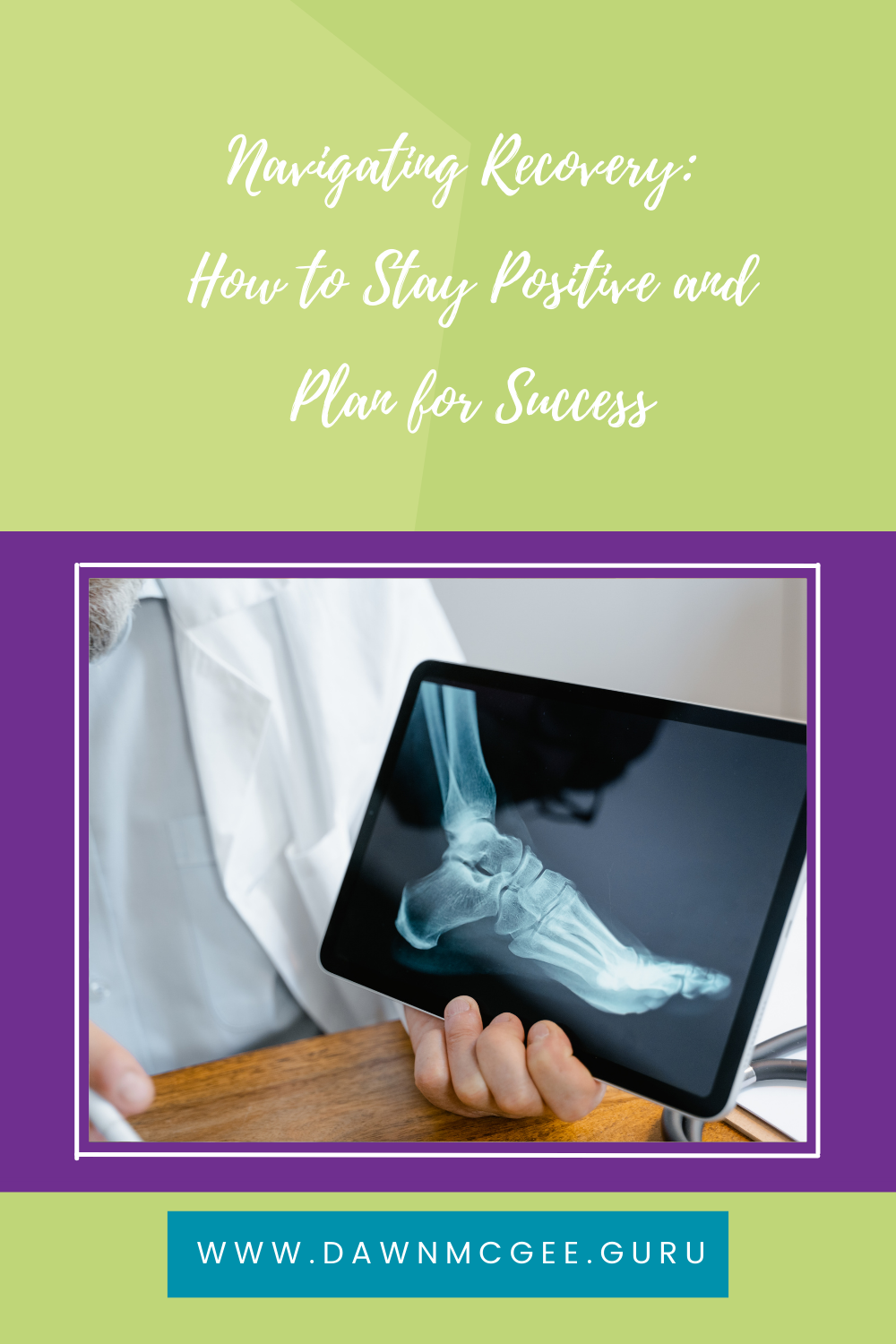Navigating Recovery: How to Stay Positive and Plan for Success
January 28, 2025

Let’s chat about something that many of us face at some point: managing recovery. For me, this year is shaping up to be a big one. I’ve got foot surgery coming up, followed by some rehab, and then in June, I’ll be tackling a knee replacement. It’s a lot, and yes, there are moments when it feels a bit overwhelming.
But here’s the thing: recovery, whether it’s from surgery, illness, or injury, doesn’t have to feel like life is on pause. It’s all about how you approach it and plan ahead to keep your mindset positive and your body supported.
Shifting Perspectives
When life forces us to slow down—like my upcoming eight weeks without pickleball—it’s easy to feel frustrated or discouraged. But instead of focusing on what I can’t do, I’m choosing to look at what I can do.
Maybe I’ll spend more time cooking and experimenting with new recipes. Perhaps I’ll dive into a good book, tackle a project I’ve been putting off, or finally organize my digital photos. Recovery isn’t just about resting your body; it’s an opportunity to shift gears and try something different.
For HealthPros, this is an essential mindset shift to encourage in your patients. Help them reframe their perspective—whether that’s by suggesting alternative activities, finding new ways to engage their interests, or celebrating small wins. Recovery can be a time of growth and exploration if approached with the right outlook.
The Power of a Plan
You’ve probably heard the saying, “Failing to plan is planning to fail.” While it’s a bit blunt, it’s absolutely true—especially during recovery. Having a plan in place ensures that you’re not left floundering on the couch, remote in one hand and a plate of cookies in the other (tempting, but definitely not ideal!).
Here’s how I’m approaching my recovery plan—and how you can coach your clients to create one for themselves:
Understand Your Limitations
Whether it’s a temporary restriction like staying off your feet or something longer-term, knowing what’s off-limits is key. For clients, this means helping them respect boundaries set by their healthcare team. As a HealthPro, your role is to understand these limitations and explain why they’re important. Help clients set realistic goals and timelines so they can feel confident about their progress.
Prepare Ahead of Time
-
Meal Prep: Stock up on nutritious, easy-to-reheat meals that fuel your body. Focus on nutrient-dense options to support healing. Encourage your clients to prep meals before surgery or enlist the help of family and friends.
-
Set Up Your Space: Arrange things so they’re within easy reach. Think water bottles, books, charging cords—whatever makes life more comfortable. If your clients have mobility challenges, suggest tools or aids that make daily tasks easier.
Focus on Your “Pillars”
Recovery isn’t just physical—it’s holistic. Prioritize these six pillars to support both body and mind:
-
Sleep: Healing happens when the body is at rest. Educate your patients on the importance of prioritizing sleep and share tips for creating a restful environment.
-
Hydration: Staying hydrated aids in healing and reduces inflammation. Remind your patients to drink plenty of water throughout the day.
-
Nutrition: Lean on whole foods and plenty of fruits, veggies, and lean proteins. As a HealthPro, if you’re nutrition certified, you can guide clients on how to best support their recovery and if not, partner with a trained colleague.
-
Stress Management: Recovery can be stressful, so mindfulness, deep breathing, or other relaxation techniques are invaluable. Share easy, practical exercises they can incorporate into their routine.
-
Movement: Rehab exercises might feel small, but they’re critical. Help clients understand the importance of consistent, purposeful movement and how it builds the foundation for long-term recovery.
-
Community: clients often need emotional support during recovery. Encourage them to lean on friends, family, or even online communities to stay connected.
Progress, Not Perfection
One of the hardest parts of recovery—for me and so many others—is adjusting expectations. For me, that means accepting that my activity level will look different for a while—and that’s okay. Progress doesn’t have to be linear, and even small steps matter.
For HealthPros, this is a critical mindset to reinforce with your clients. Remind them that ups and downs are part of the process, not the end of it. Validate their feelings of frustration or discouragement and guide them back to their goals.
A Partner in Recovery
Whether you’re on your own personal recovery journey or coaching others through theirs, remember: recovery isn’t just about “getting back to normal.” It’s about finding new ways to thrive, embracing change, and leaning into the process with grace.
If you’re a HealthPro, you have the unique opportunity to not just treat the physical, but to be a source of encouragement, understanding, and motivation. Help your clients see the bigger picture and the possibilities that this next phase can offer.
And to those recovering, know this: you’re not alone, and you’re not stuck. Recovery is temporary, and with the right mindset and support, you’ll come out stronger on the other side.